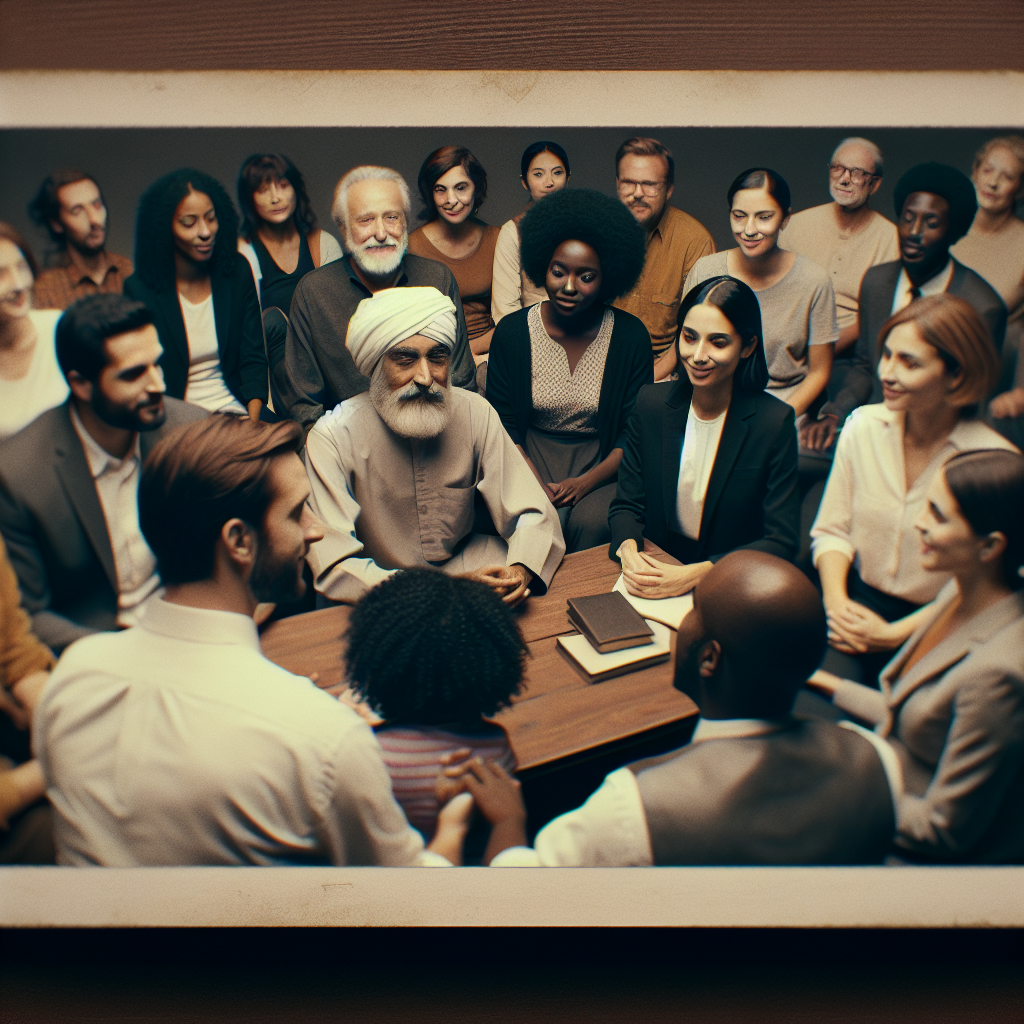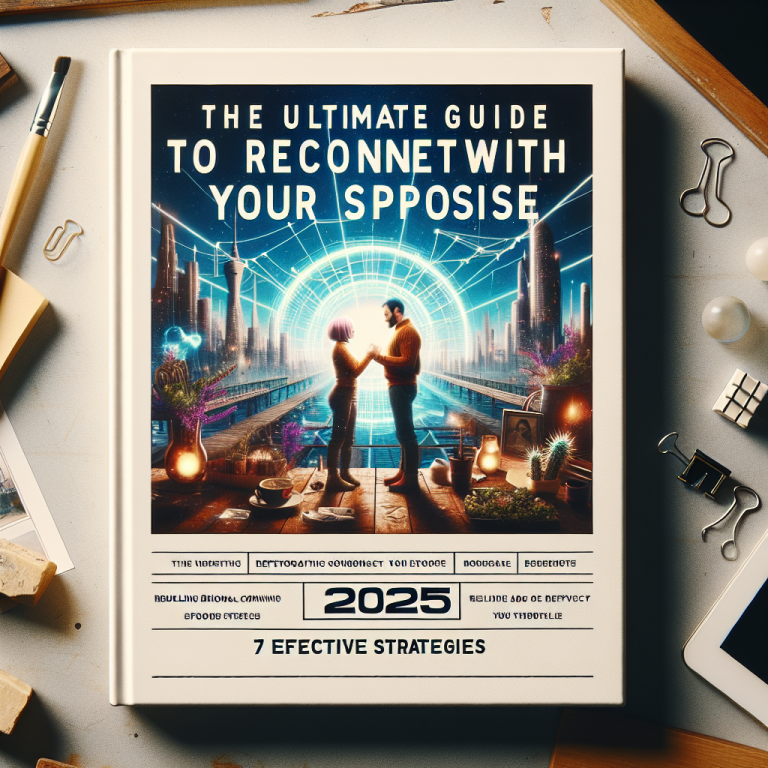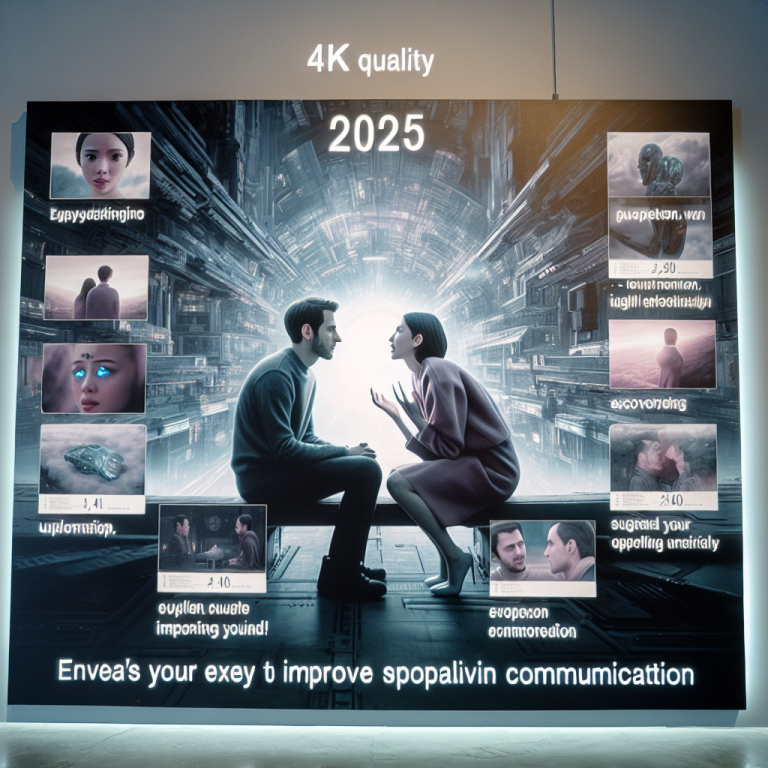How to be on the same team even when you disagree
Communication is Key
Express Your Thoughts Openly
When it comes to working with others, one of the most powerful tools at our disposal is honest communication. I can’t stress enough how crucial it is to express what you’re thinking clearly. Early on in my career, I learned that bottling up my thoughts or frustrations often led to misunderstandings and misinterpretations. So, I started making it a habit to share my thoughts directly and candidly.
Open communication creates an environment of trust. When my teammates see that I’m willing to share my perspective, they’re more likely to do the same. This open exchange allows us to understand each other’s viewpoints better and, ultimately, leads us to find common ground even when we disagree.
Remember, being open doesn’t mean you have to agree on everything. It means you respect each other enough to share where you stand and listen attentively. It’s like being on a busy street; if we don’t talk, we’re just going to collide!
Practice Active Listening
Active listening is a game changer. When I first started out, I was guilty of just hearing what others said without really tuning in. It was only after a mentor pointed it out that I realized how important it is to pay close attention to my colleagues’ words. Just nodding and making affirmative sounds isn’t enough—instead, truly engage. This means asking questions and paraphrasing what they say to show that I’m genuinely interested.
This has led to some unbelievable insights. By focusing fully on my teammates, I often discover angles I hadn’t considered before. Plus, it builds rapport. When someone knows that you’re really listening, they feel respected, and that often makes them more inclined to hear you out as well.
So next time someone is sharing their thoughts, give them your undivided attention. You might just find that the disagreements turn into productive discussions!
Finding Common Goals
We often get lost in our individual viewpoints or preferences, but one of the most successful strategies I’ve found is to steer the conversation back to our collective goals. It’s funny how quickly perspectives can shift when we focus on what we’re all ultimately trying to achieve together. I often remind my team of the big picture, which helps us align even when our ideas diverge.
For instance, during project meetings, I like to kick things off with a reminder of our shared objectives. This gets everyone on the same page and shifts the conversation into a collaborative mode rather than a combative one. When everyone’s working toward the same end, it’s easier to navigate differences in opinion.
So, if you find yourself in a disagreement with someone at work, try to redirect the conversation to your common goals. It might just spark the creative ideas you need to combine your differing perspectives into one cohesive plan.
Embrace Differences
Respect Diverse Perspectives
One of the best parts of working in teams is the incredible diversity of thought that each person brings. I’ve learned to embrace differences rather than shy away from them. Each team member has unique experiences and insights that can add so much value to the task at hand. I make it a point to actively acknowledge and respect these diverse perspectives.
Initially, I viewed differing opinions as potential conflicts. But as I gained more experience, I started to see them as opportunities for innovation. When we honor what every person brings to the table, we foster a richer environment filled with creativity and variety. When I’m in a meeting, I always try to call out unique thoughts and encourage discussion around them.
So, the next time a team member expresses a viewpoint that differs from yours, instead of dismissing it, consider what they might bring to your project! You might find that their contribution could elevate your work significantly.
Celebrate Small Wins
Disagreements can be discouraging, and that’s why I make it a habit to celebrate the small wins. When we manage to collaborate effectively despite our differences, no matter how minor the success may seem, it’s essential to acknowledge it. It keeps morale high and reminds everyone that progress is being made, even amidst disagreements.
Whether it’s closing a small deal, nailing a presentation, or simply coming to a decision, I’ll raise a toast (figuratively or literally!) to recognize our teamwork. This type of celebration fosters a sense of camaraderie and motivates everyone to continue working together, even when things get tough.
Note this: Celebrating wins doesn’t have to be a big event. A simple ‘Great job, team!’ can go a long way in nurturing a positive atmosphere where everyone feels valued.
Maintain a Positive Attitude
Attitude is everything, right? I’ve noticed that having a positive outlook can transform the dynamic of the group. Even when disagreements arise, carrying a positivity that is infectious can help turn a tense situation into an opportunity for growth. I approach disagreements with a mindset geared towards finding solutions rather than dwelling on problems.
There’s a saying that goes, “You catch more flies with honey than vinegar,” and I try to live by that! Instead of focusing on the negatives, I always look for the bright side of things. This often encourages others to do the same, creating a more cooperative spirit in the team.
So when you find yourself at odds with a colleague, remember that a positive attitude is a powerful tool. It’s like a secret weapon that can disarm confrontation and unite the team towards collaborative resolutions.
Conflict Resolution Techniques
Use Mediation if Necessary
Sometimes disagreements can get heated, and that’s when it might be time to call in a neutral third party. Although I prefer to resolve conflicts directly, I’ve found that mediation can be incredibly helpful when emotions are running high. A mediator can facilitate a structured environment where both sides are encouraged to share their viewpoints without interruption.
Through mediation, I’ve learned that it helps to clarify misunderstandings and can lead to constructive outcomes. I remember a time where, after a particularly heated debate on a project, we brought in a manager to help us sort through our differences. This process not only cleared the air but revealed underlying issues we hadn’t considered before.
So, don’t shy away from seeking help when it’s needed. Mediators can provide a fresh perspective, which can ultimately lead to more effective collaboration moving forward.
Take a Step Back
When a disagreement starts to feel overwhelming, I’ve learned the value of taking a step back. Sometimes, it’s all too easy to get caught up in the heat of the moment. By taking a brief pause, I can gather my thoughts and reflect on what’s truly at stake. This has often provided me with a different perspective, allowing me to approach the situation more calmly and rationally.
It’s like giving yourself a timeout! During these chilly moments, I explore what’s really bothering me and how I can approach the disagreement more constructively. It helps tremendously in reducing tensions and reassessing the situation with a clearer mindset.
Next time you’re facing a heated discussion, don’t hesitate to take that precious time out. A breather could be just what you need to re-engage effectively!
Focus on Solutions, Not Blame
Lastly, I cannot stress enough how important it is to stay solution-focused during disagreements. Rather than dwelling on who may have dropped the ball, it’s essential to shift the conversation to how we can fix the problem together and prevent it from happening again. This proactive approach has salvaged many a tricky situation for me.
During team discussions, I always steer the conversation back to actionable solutions rather than pointing fingers. This creates an environment where team members feel encouraged to contribute and collaborate without fear of criticism. Projects have been saved and morale boosted when we work together to find constructive outcomes.
So, when disagreements arise, challenge yourself to ask: “What can we do to move forward?”. This mindset can transform potential conflicts into invaluable learning experiences.
Frequently Asked Questions
1. How can I effectively communicate my disagreements without causing conflict?
It’s all about practicing open communication. Be clear and respectful in expressing your thoughts. Focus on the issue, not the person, and make sure to listen actively to their perspective as well.
2. What if my team is not receptive to differing opinions?
Encourage a culture of respect for diverse perspectives. You can initiate discussions that highlight the value of collaboration and different viewpoints by sharing successful experiences from your own history.
3. How do I keep my team motivated during disagreements?
Celebrate small wins and always keep the conversation focused on common goals. Remind everyone about the bigger picture and their contributions to it, which often helps maintain motivation.
4. What are some effective conflict resolution techniques to use?
Using mediation, taking a step back to reflect, and focusing on solutions rather than blame are effective techniques. Sometimes bringing in a neutral party can help facilitate understanding.
5. How can I improve my active listening skills?
Start by giving your full attention to the speaker, making eye contact, and avoiding interruptions. Practice summarizing what they’ve said to confirm your understanding, and never hesitate to ask clarifying questions.
Related Content
- Japanese Dating Myths Debunked: 7 Effective Strategies to Know in 2025
- Why date nights matter more than you think
- The Ultimate 2025 Guide to the Best passport bros dating apps to use for Successful Connections
- How to Use Humor to Instantly Connect with Women Online in Charlotte
- How to Master the Subtle Art of Teasing to Build Attraction










